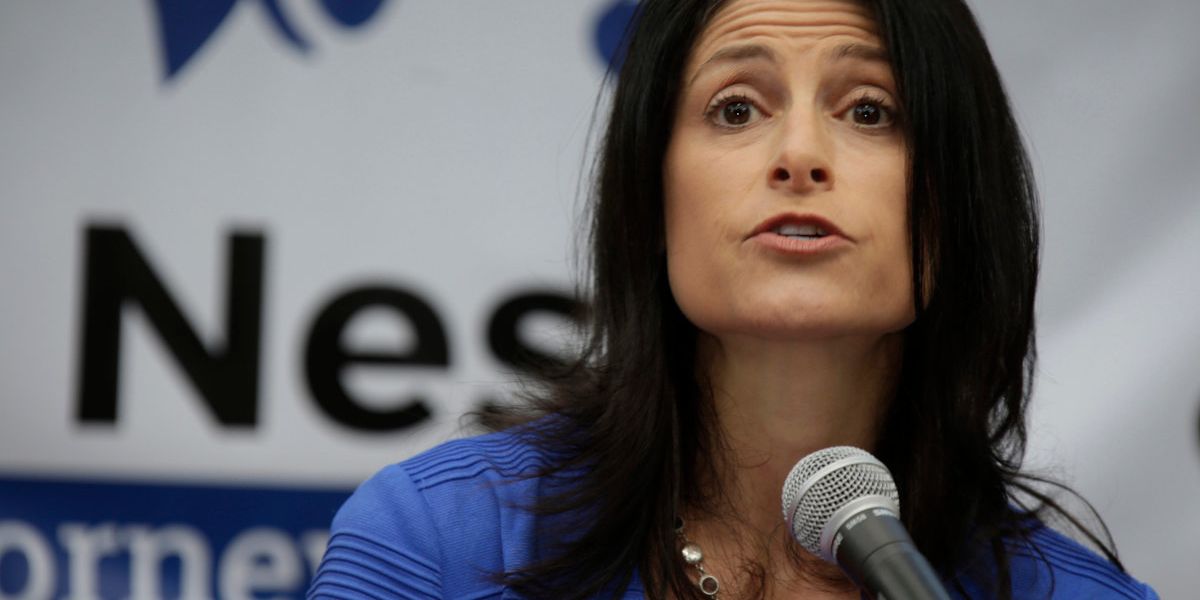

Michigan Attorney General Dana Nessel (D) will no longer enforce Democratic Gov. Gretchen Whitmer’s executive orders on the coronavirus after the state Supreme Court ruled the emergency powers seized by Whitmer were unconstitutional.
Nessel’s office announced Sunday that Whitmer’s coronavirus restrictions would no longer be enforced through criminal prosecution, effectively ending the statewide mandates for Michiganders. But a spokesman for the attorney general indicated local law enforcement agencies may continue to enforce COVID-19 mandates in accordance with local ordinances, Bridge Michigan reports.
"In light of the Supreme Court’s decision on Friday, the Attorney General will no longer enforce the governor’s executive orders through criminal prosecution," Nessel spokesman Ryan Jarvi said. "However, her decision is not binding on other law enforcement agencies or state departments with independent enforcement authority.
"It’s her fervent hope that people continue to abide by the measures that Gov. Whitmer put in place — like wearing face masks, adhering to social distancing requirements and staying home when sick — since they’ve proven effective at saving lives," Jarvi said.
Last Friday, the Michigan Supreme Court found that emergency directives issued by Whitmer unilaterally without authorization from the state legislature were an "unlawful delegation of legislative power to the executive branch in violation of the Michigan Constitution." The ruling said Whitmer did not have the power to extend past April 30 orders shutting down businesses deemed by the government to be "non-essential." The court said she had illegally drawn authority from two laws passed in 1945 and 1976 that were non-applicable.
The court noted that among the businesses closed by Whitmer’s order were "restaurants, food courts, cafes, coffeehouses, bars, taverns, brew pubs, breweries, microbreweries, distilleries, wineries, tasting rooms, clubs, hookah bars, cigar bars, vaping lounges, barbershops, hair salons, nail salons, tanning salons, tattoo parlors, schools, churches, theaters, cinemas, libraries, museums, gymnasiums, fitness centers, public swimming pools, recreation centers, indoor sports facilities, indoor exercise facilities, exercise studios, spas, casinos, and racetracks."
"These policies exhibit a sweeping scope, both with regard to the subjects covered and the power exercised over those subjects. Indeed, they rest on an assertion of power to reorder social life and to limit, if not altogether displace, the livelihoods of residents across the state and throughout wide-ranging industries," the ruling declared.
Whitmer responded to the decision critically, accusing the judges on the court of acting politically and claiming the restrictions would remain in place for the next 21 days.
However, Nessel’s announcement effectively lifts the mandates on businesses because they will no longer be enforced by state authorities.
Republican state Senate Majority Leader Mike Shirkey (R) said the court’s decision means Whitmer will have to work with the Republican-controlled Legislature to create a bipartisan COVID-19 plan. Shirkey told Bridge Michigan that the state mask mandate and several business regulations will likely not be supported by Republicans.
"We’re moving now from an era or a time when the focus was on mandating, dictating and frankly in some cases threatening, to more of an informing and inspiring and encouraging and loving and trusting people to do the right thing," Shirkey said.
He added that lawmakers need to leave behind a "lingering notion that we could, by restricting everything, basically ignore the fact that the COVID exists and delay everything for perpetuity. The virus ultimately was going to win, it was just going to take a longer time."
via Conservative Review
Enjoy this article? Read the full version at the authors website: https://www.conservativereview.com/
